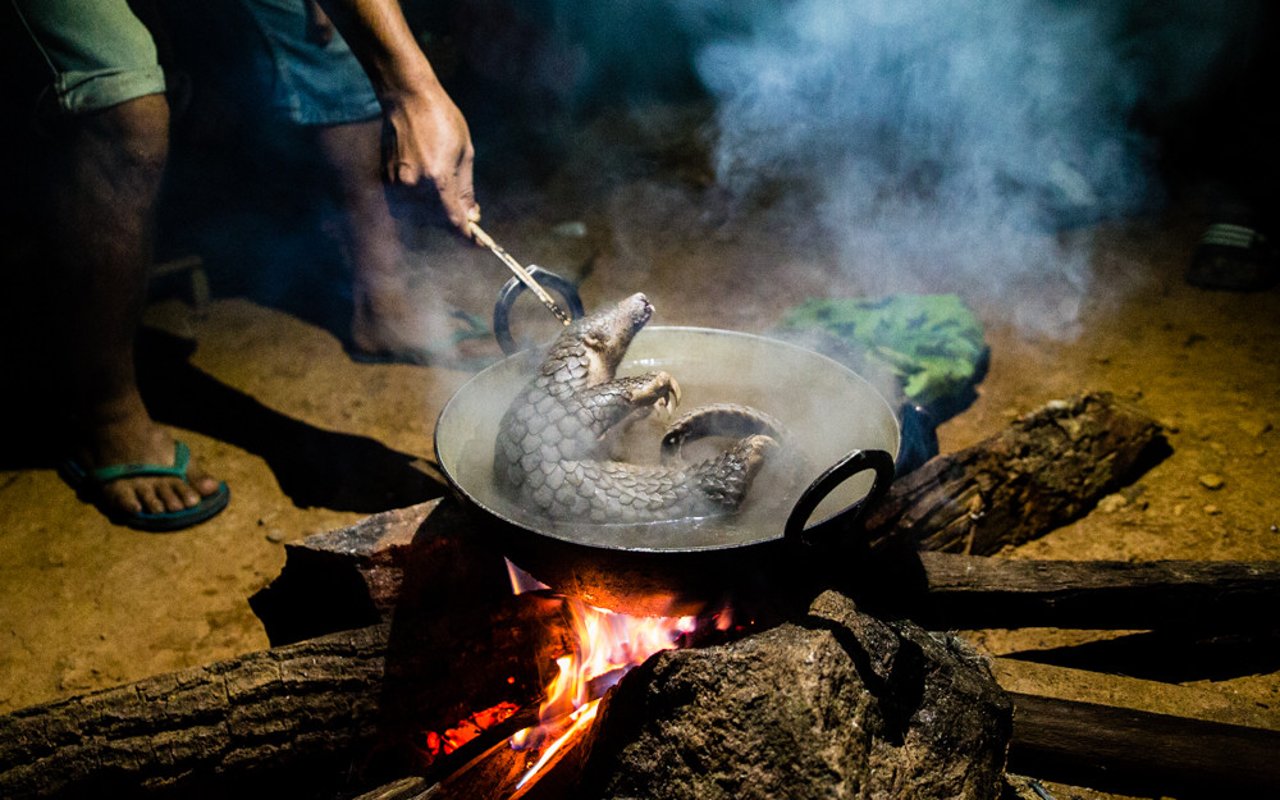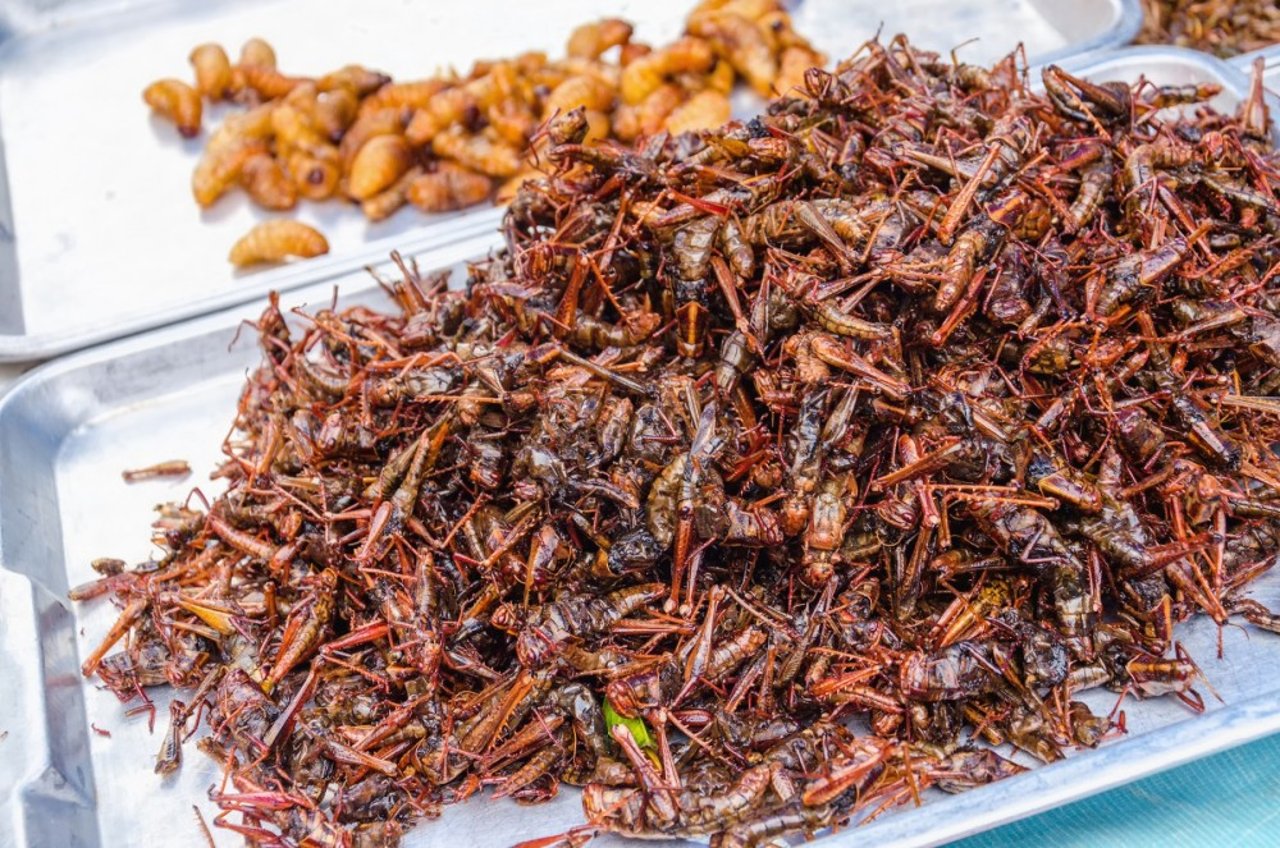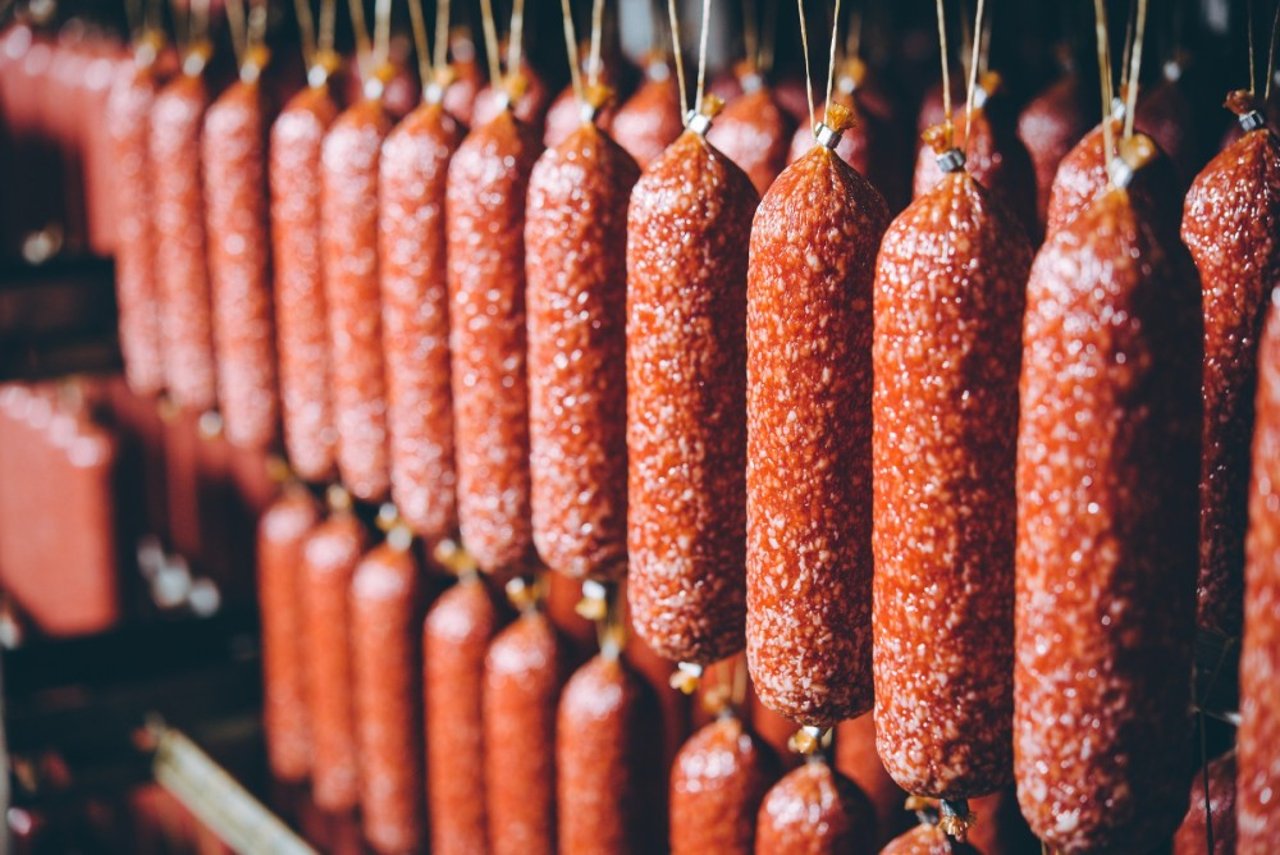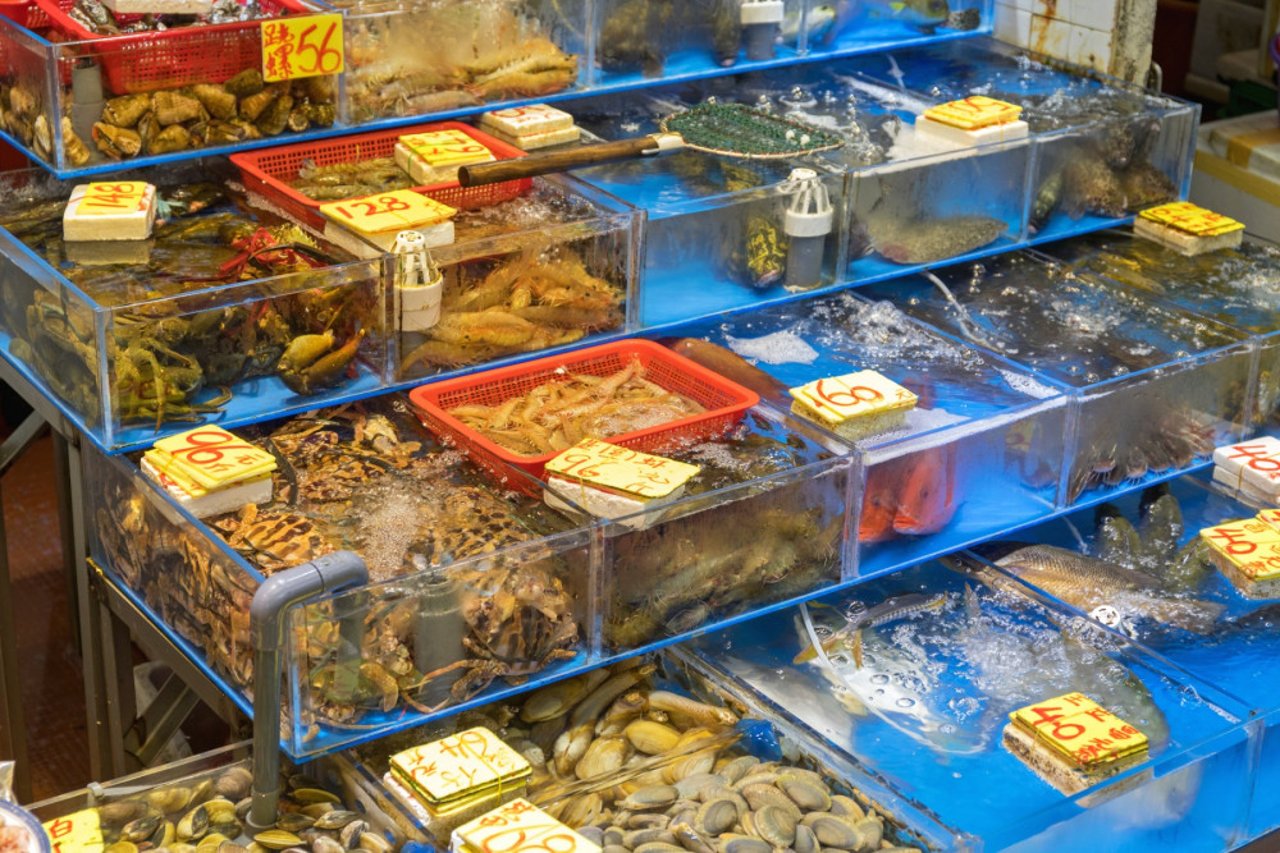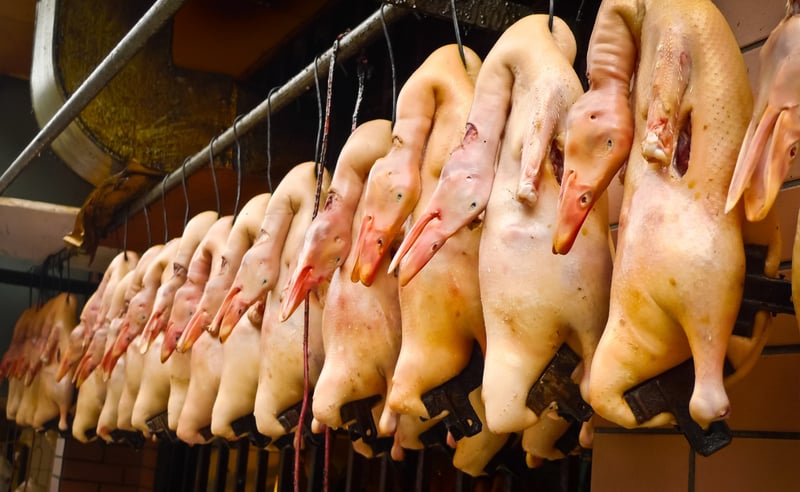
There are many live animal markets around the world in which animals are kept in cramped, dirty conditions with direct contact with humans. Live markets of Wuhan, China is home to over 100 different animals getting slaughtered and sold in front of customers, and hence called Wet Markets.
Animals as food
Humans have already wiped out 60% of mammals, birds, fish, and reptiles since 1970, and now considering animals as food is adding a threat to their survival. According to studies by WWF, this rapidly growing demand and consumption of food and resources are destroying the web of life.
Apart from destroying lands for food production, humans have also dominated the wild animals for their taste buds, which lead to the illegal trade of wild animals. Illegal wildlife trade is devastating wildlife species all over the world. The consumer demand and profit for poachers, traffickers, and organised criminal syndicates have taken over the lives of so many wild species. The trafficking and unsustainable trade in wildlife commodities such as elephant ivory, rhino horn, pangolin scales, tiger bone, bear bile are causing unprecedented declines in some of the world’s most charismatic as well as some lesser-known, wildlife species. Apart from this, the increasing demand for wild animal delicacies is putting a threat to the survival of many other wild animals.
Live markets of Wuhan, China
There are many live animal markets around the world in which animals are kept in cramped, dirty conditions with direct contact with humans. Live markets of Wuhan, China is home to over 100 different animals getting slaughtered and sold in front of customers, and hence called Wet Markets. These markets are full of the wolf, pups, civet cats, poultry, bats, snakes, and many more animals in the worst condition ever seen.
And now, the animal has turned back on humans, and these live markets have given rise to deadly Coronavirus, which is now a global health emergency, according to the World Health Organisation. The reason is China’s live markets. Many images and videos of sick, suffering animals in markets, bats boiling alive in bowls of soup, slaughtering snakes have created an outrage globally amongst animal lovers. Buying live wild animals for eating is a megascale phenomenon in China, and the wild animals are imported from countries illegally. Though, China government allows 54 wild species to be bred and on farms and sold for consumption, including minks, ostriches, hamsters, snapping turtles, and Siamese crocodiles.
CoronaVirus is growing
In contrast, wild animals such as snakes and birds of prey are poached and brought to state-licensed farms. Looking at the rising human deaths, China announced a ban on its wild animal trade until the crisis is over. The death toll has reached over 500, and many people infected with Coronavirus is growing with no signs of slowing down. There are 24,324 confirmed cases in the row.
The deadly virus has also reached India, and there are three positive cases reported from Kerala. Approximately 2000 people are under observation in Kerala who have visited China/affected countries in the past of whom, 75 are in isolation wards while others are in the incubation period.
The obvious reasons behind the spreading coronavirus are having high population density made up of humans and animals in these live markets i.e., a hotbed for disease outbreaks. Also, these live markets are repulsive places, filled with caged, frightened animals, many of which are captured illegally in the wild. The animals here are skinned and slaughtered, releasing the combination of several microorganisms in the air. The mix of wild and domestic animals in a dreadful and cramped condition, along with the crowds of people choosing their victims, is a pandemic in the making of such scenarios. The place itself was an inevitable consequence of poor hygiene, cross-contamination, and low animal welfare.
It is high time that these live markets are closed down, or all the parameters for animal welfare are considered. Wild animals have way more threats like the destruction of habitats, conflicts with humans, hunting, poaching, urbanization, and the now the illegal trade for food. The illegal trade of animals must end to save these creatures.
The wild belongs to the wild, not on your plate!
Sources:
- https://www.nationalgeographic.com/animals/2020/01/china-bans-wildlife-trade-after-coronavirus-outbreak/
- https://www.traffic.org/about-us/illegal-wildlife-trade/
- https://www.theguardian.com/environment/2018/oct/30/humanity-wiped-out-animals-since-1970-major-report-finds
- https://www.commondreams.org/views/2020/02/04/eating-animals-will-be-death-us
- https://www.worldometers.info/coronavirus/
- https://economictimes.indiatimes.com/news/international/world-news/coronavirus-in-india-what-is-happening-and-what-you-should-know/articleshow/73978271.cms?from=mdr
The deadly virus has also reached India, and there are three positive cases reported from Kerala.
